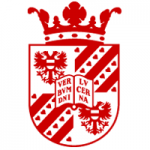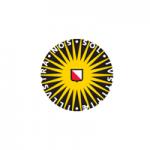项目介绍
Lund University was founded in 1666 and is repeatedly ranked among the world’s top universities. The University has around 47 000 students and more than 8 800 staff based in Lund, Helsingborg and Malmö. We are united in our efforts to understand, explain and improve our world and the human condition.
Lund University welcomes applicants with diverse backgrounds and experiences. We regard gender equality and diversity as a strength and an asset.
Lund University School of Economics and Management is one of eight faculties within Lund University. More than 4 000 students and 450 researchers, teachers and other staff are engaged here in training and research in economic history, business administration, business law, informatics, economics, statistics and research policy.
Lund University School of Economics and Management is accredited by the three largest and most influential accreditation institutes for business schools: EQUIS, AMBA and AACSB. Only just over 100 business schools in the world have achieved this prestigious Triple Crown accreditation.
The Department of Economic History is a research-intensive department that employs about 100 people: researchers, teachers, technical/administrative staff, and Ph.D. candidates. The department has a large PhD programme and co-ordinates three international Master programmes. The Department has a well established reputation for wide-ranging research with an emphasis on long-term processes, and with economic theory and quantitative methods as important methodological tools. Strong research areas at the department include economic growth and structural change, innovation, energy and sustainability, development economics, and economic demography, as well as financial history and education and the labour market. More information is available at the Department’s website: www.lusem.lu.se/organisation/department-economic-history.
Assigned duties
Those appointed to doctoral studentship shall primarily devote themselves to their studies, aimed to result in a doctoral degree. Work carried out during the studentship consists of participation in research projects as well as successful participation in postgraduate (third-cycle) courses. Those appointed to doctoral studentships may also work, to a limited extent, with educational tasks and administration at the Department of Economic history. However, duties of this kind may not comprise of more than 20 per cent of a fulltime post.
The ERC-funded research project ‘Relative Health. Long-Run Inequalities in Health and Survival Between Families and Across Generations’ (PI Ingrid van Dijk) is looking to recruite 1-2 PhD students. The PhD student(s) will work in this project in collaboration with other project members, including the project leader and other researchers. The project aims to measure inequalities in health and survival from a family perspective, comparing developments over time and between different contexts. A variety of data sources will be used, including historical and contemporary register data, survey data, twin registers, and biobanks. We are looking to fill one or more PhD positions in the project.
Eligibility / Admission requirements
A person meets the general admission requirements for third-cycle courses and study programmes if he or she has:
- Been awarded a second-cycle degree; or
- Satisfied the requirements for courses comprising of at least 240 credits of which at least 60 credits were awarded in the second-cycle; or
- Acquired substantially equivalent knowledge in some other way in Sweden or abroad.
(Higher Education Ordinance, Chapter 7, Section 39)
Specific admission requirements for doctoral studies in each subject are specified in the relevant general syllabus, available at Doctoral studies | Lund University School of Economics and Management (LUSEM)
Other requirements
A proficient level of English is required in both written and oral communication. Demonstrated quantitative skills are required and good abilities in data management and statistical programming are considered as merits.
Basis of assessment
Admittance of a doctoral student is based on an assessment of the candidate’s ability to benefit from third-cycle studies, see the general syllabus for third-cycle studies, available at Doctoral studies | Lund University School of Economics and Management (LUSEM).
The applicant’s ability to benefit from third-cycle studies and research will primarily be assessed on the basis of academic results from the first and second cycle.
Applicant’s general competence:
- Quality and content of previous written work, such as a Master’s thesis.
- Ability to participate actively in the Department’s research environment.
- Ability to perform independent scientific work.
- Ability to work with advanced quantitative methods.
- Experience in working with large individual-level databases. Examples include longitudinal register-based data, historical databases, longitudinal survey data, twin registries or biobanks.
- Experience with data management, preferably in R.
- Proficiency in written and oral communication.
- Relevant educational background, for example in sociology, demography, epidemiology, public health, economic history, or economics.
- Other relevant experiences for third-cycle education, such as work experience.
Candidates should be interested in inequalities in health and survival and how to measure these, using innovative approaches based on register and survey data. The applicant should have demonstrable experience in quantitative analysis of individual-level data and data management of large micro-level longitudinal databases. Experience in working with R is considered a merit.
Project
The doctoral student(s) will work within the ERC-funded research project ‘RELATIVE HEALTH: Long-Run Inequalities in Health and Survival Between Families and Across Generations’ (PI Ingrid van Dijk). The project is motivated by inequalities in lifespan and health in populations, and seeks to find new ways to quantify such differences between populations, using intergenerational persistence of health and similarities between relatives. Using a variety of longitudinal register and survey data, new approaches to measuring inequalities in health and survival between populations will be developed. In the project there will be close collaboration with other project members, to also understand better the factors that affect inequalities and change over time and differences between countries and regions.
Terms of employment
Fixed-term employment, maximum four years (fulltime studies).
Only those admitted to third-cycle courses and study programmes at a higher education may be appointed to doctoral student.
For regulations concerning employment of doctoral students etc, see the Higher Education Ordinance, Chapter 5, Sections 1-7.
For regulations concerning admission to third-cycle courses and study programs, see the Higher Education Ordinance, Chapter 5, Sections 34-41.
Application procedure
Please use Lund University job application portal when applying: Work at Lund University | Lund University
The application must be written in English.
The application should contain:
Personal letter in which the applicant gives a short description of him/herself and his/her research interests and its relevance for the project, maximum 3 pages. Curriculum vitae. Grade transcripts. Master thesis or similar degree projects. If appropriate, documented language skills relevant for third-cycle studies. Other documents that the applicant wishes to submit.
联系方式
电话: +46 (0)46 222 0000相关项目推荐
KD博士实时收录全球顶尖院校的博士项目,总有一个项目等着你!






